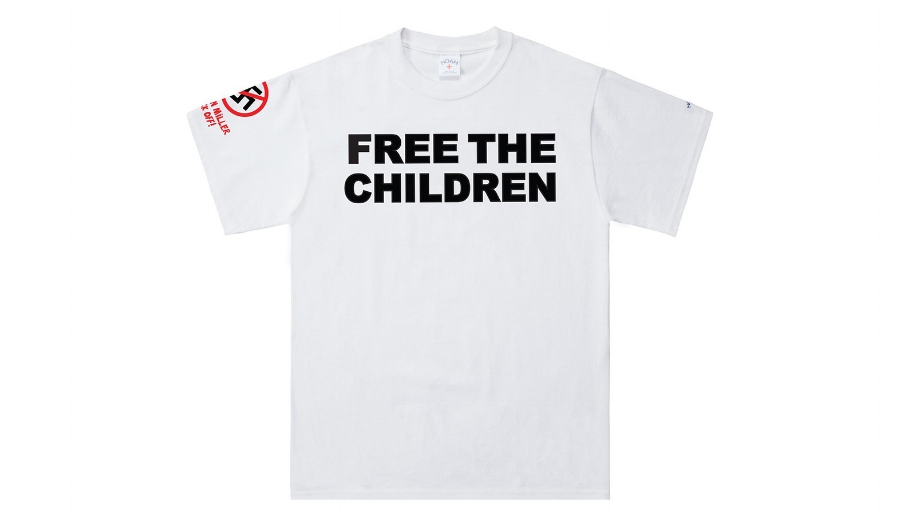 image: Noah
image: Noah
When is it okay for brands to get political? This is a question that a Forbes contributor posed last fall, recognizing that while “the reputational risks [of doing so] are undoubtedly high, the rewards of successful political activism are even higher.” In taking a public stance, brands undeniably “risk irritating consumers who disagree,” per Forbes, but at the same time, “it’s also an opportunity to stand up for values that are consistent with the brand’s messaging, earning further respect from consumers who are increasingly looking to vote with their wallets.”
One brand seems to understand this better than most: Noah (and Patagonia, of course).
The New York-based menswear brand, which was founded Brendon Babenzien, who left his role as creative director of Supreme in early 2015 to focus on his own brand. Under the Noah label, Babenzien and his team put out buzzy menswear – from retro wardrobe staples (button-up work shirts, zip up hoodies, and swim trunks) to much-hyped collaborations with the likes of Sperry and photographer Michael Muller, but more than that, the label’s founder has made it clear that he is interested not just in selling clothing and accessories that end up of the web’s most highly-trafficked menswear sites. He is here to “take a stand against many of the appalling practices of the fashion industry.”
Specifically, in furtherance of its mission to promote the sense of conscious consumerism that is at the core of its brand (and which stands in stark contrast to how the larger fashion system operates), Noah’s “clothes are made in countries, mills and factories where tradition, expertise and human dignity take precedence over the bottom line,” and the brand “donates portions of our profits to causes we believe in, and we speak out on issues we find important.”
It is against this background that Noah has been one of the brands at the forefront of activism-by-fashion, releasing capsules that shed light on various social issues, the most recent of which comes in the form of a t-shirt that reads, “Free The Children.” All proceeds from the sales of the shirt – which is currently available for pre-sale on Noah’s site – will be donated to Refugee and Immigrant Center for Education and Legal Services, which is, as Noah puts it, “paying the bond of as many immigrants in detention as possible, reuniting families that are being held in ICE custody because they can’t pay the bonds averaging $5,000 to $10,000 per person.”
Noah is interesting because it is not just attempting to address social issues by way of its products; it is doing so in a way that its fans find to be completely authentic. This is no small feat in a shaky retail landscape, where no shortage of companies have looked to social outreach as a way to boost their bottom lines, either directly by way of socially-motivated merch (without clearly allocating all or most of the profits to a philanthropic cause from the outset) or by aligning themselves with causes by way of social media messaging and runway looks, which has proven a popular, but woefully inadequate, tactic.
Of course, it would be naive to overlook the potential points for goodwill that brands stand to potentially amass as a result of the mass-publication of their social cases, particularly as consumers – as a whole – have come to expect their favorite brands to take a stand in the increasingly polarizing political landscape.
However, most brands fall very short. There is something very off-putting about an $800 Christian Dior t-shirt promoting feminism when the vast majority of the LVMH empire is run by men. There is similarly something not-quite-right about Opening Ceremony positioning a t-shirt purchase as a form of action … or for fast fashion brands to promote female well-being when no shortage of the women in their supply chains are underpaid and subjected to various forms of abuse.
With this in mind, it is important to remember that consumers, particularly those of the millennial ilk, are not stupid. Just as they have sniffed out and subsequently rejected traditional advertising methods and messaging (thereby prompting the surge in native and influencer marketing), they expect brands to take a stand on values. According to recent data from American market research company, Forrester, nearly seven in ten U.S. Millennials actively consider company values when making a purchase.
But let us be very clear on one thing: Those same consumers expect brands to do so in a way that is authentic. If something appears to be awry – or not “on-brand” – they are likely to pick up on that and make their findings known in Instagram comment sections, which is the making of a public relations nightmare.











